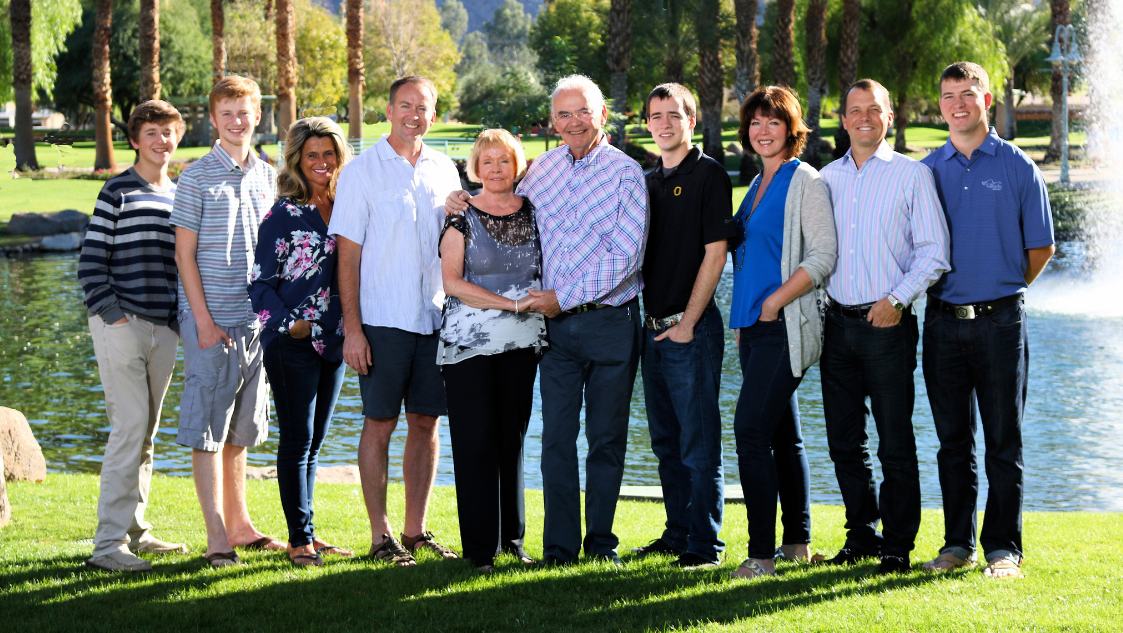A Conversation with Melody, Chip, Tye, and Max Gabriel
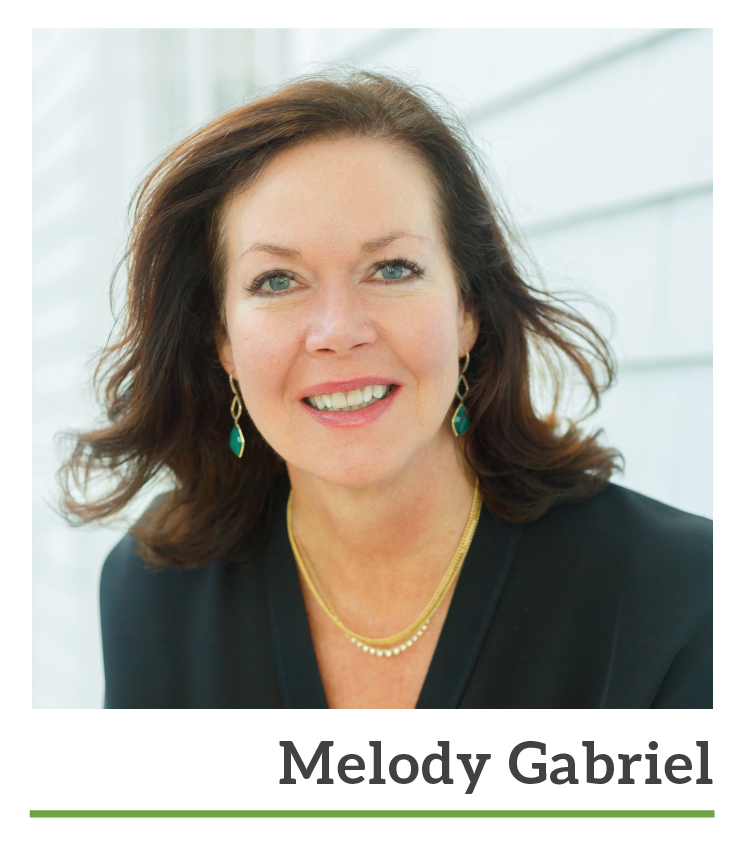
This article is the fourth in a series showcasing parent/child dynamics across the senior housing and care industry. My conversation with the Gabriel family—fifth generation owners of Generations LLC—offers insights into why this is becoming a common trend.
Melody Gabriel is the CEO and Owner of Generations LLC—an Oregon-based owner and operator of independent living, assisted living, memory care, and skilled nursing homes. Growing up in the industry, Melody brings over 30 years of experience and unique perspective to the business. Driven by a passion to create change that makes lives better every day, she has built a strong leadership team and doubled the size of the company since 2019. Melody proudly continues the legacy of her father, Wendell White, including deeply seated values around how those at Generations do their work and the quality and attention given to staff and residents.
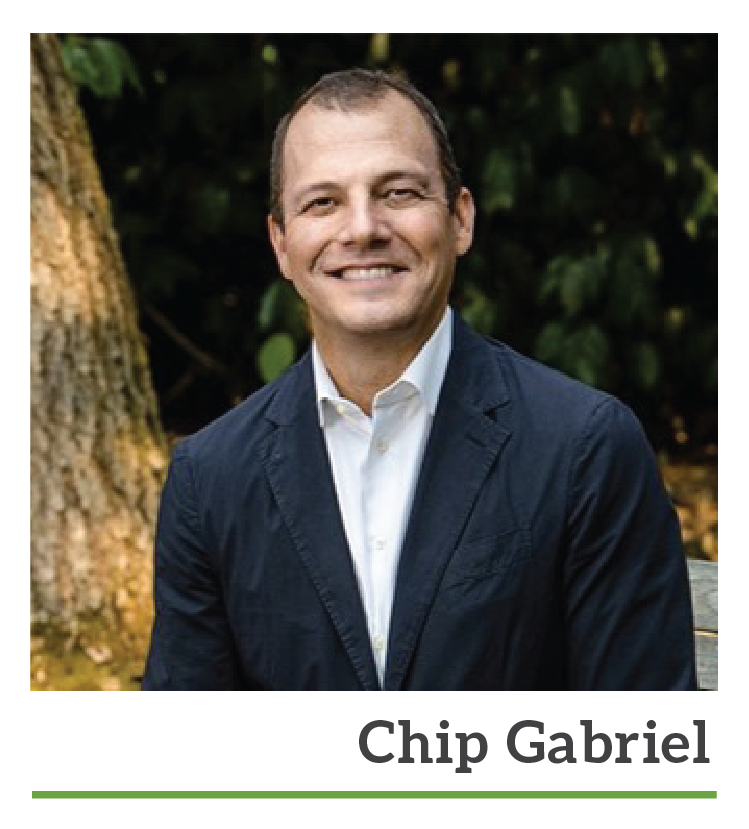
Chip Gabriel is former executive chairman of Generations LLC. In the 35 years he worked at the company, it grew to operate 11 communities totaling 2,288 units in five Western states. Chip is currently Managing Partner of Senior Living Transformation Company, LLC/Centered Care Inc.
Max Gabriel serves as Director of Business Development and Analytics at Generations. He works on development finance initiatives and the organization’s operations and accounting team.
Tye Gabriel is a Senior Executive Director at Generations’ Cherrywood Village property.
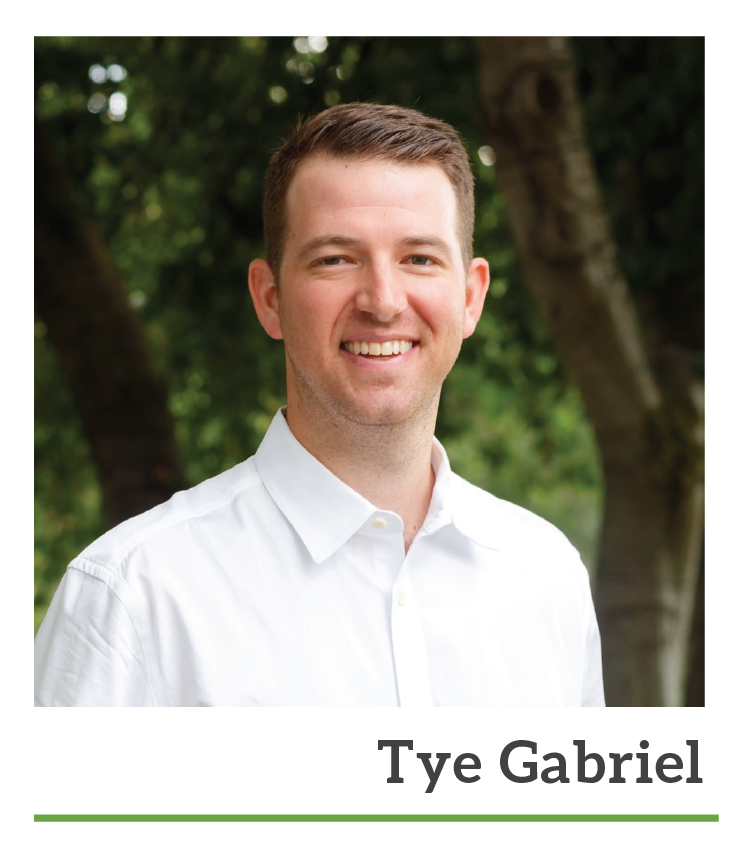
Tell us about yourself and your work.
Melody Gabriel: Generations was started by my great grandmother. I grew up in a senior living environment and it’s always been where I feel most myself. In college I pursued a business in psychology degree and dabbled in other interests like modeling and fashion, but my heart brought me back to working with seniors. I started my career at Generations in sales and marketing. After 10 years, I got pulled into operations where I found my home.
As the company grew, I expanded my leadership and eventually took over as CEO when my brother stepped away. It’s been deeply satisfying to me to have the influence of how we operate and serve our residents and people.
My father is low ego, insightful, and extremely passionate about senior housing. He grew up without a father so he’s very family first, business second. He structured it in a manner that allows multiple personalities to work together in leadership roles.
Chip Gabriel: I married into the business. I was drawn to Melody’s father’s passion for the residents and dedication to the people who care for them. From the beginning, the focus was on innovation, creativity and not being the biggest, but being the best.
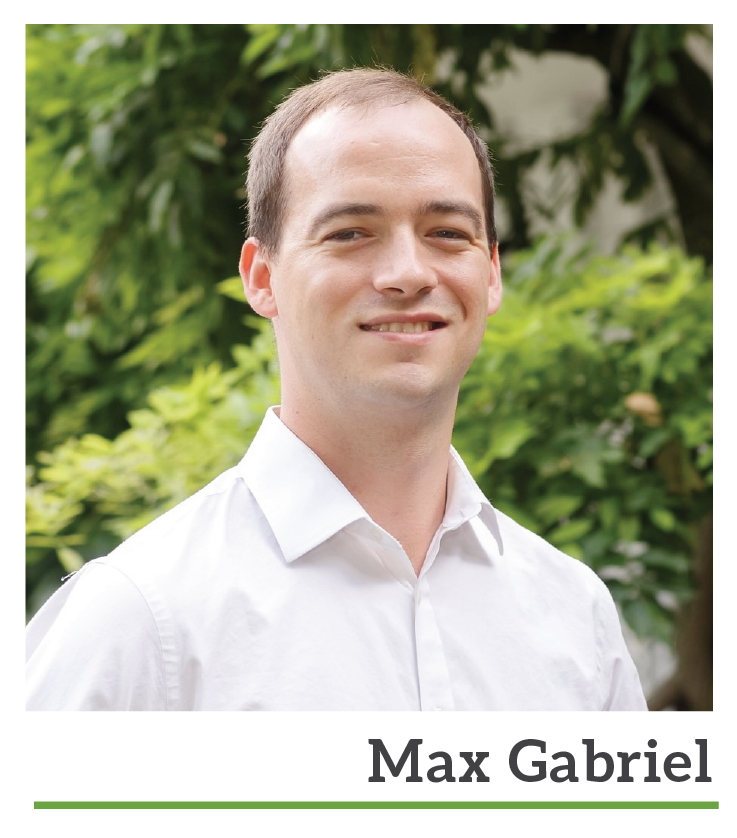
We listened to the customer and evolved to transform properties into intergenerational lifestyle communities. Our goal with newer campuses was to be exterior-focused and invite the general public to use the bistros, performing arts centers, and other amenities.
Max Gabriel: When I was born, my mom was Executive Director of a property in Portland. My nursery was right down the hall from her office, so I literally grew up in the community. Through high school I worked as waitstaff and maintenance, then right out of college I did a more formal management training exposing me to a range of different environments.
Through it all, I never felt pressure to join the business. My parents were adamant that I could choose my own path, but at the end of the day, working with residents and changing people’s lives was too special to pass up.
Tye Gabriel: I grew up around my parents being fully immersed in the family business. Initially, I didn’t have any desire to be in it myself. I did some odd jobs in the communities through high school but didn’t have the intention of pursuing it beyond that. When I was in college and for a few years after, golf was my number one focus. Eventually, it got to a point where I didn’t feel like I had the temperament to pursue the sport as a career. It is a very self-centered role and growing up in a family business that has a team-mission, I was really missing that.
While I tried to figure out my next move, I began helping on the sales side of Generations. In 2020, I went to business school to explore what I wanted to do. I came to the conclusion that this industry is set up for exponential growth. I felt like being a part of my family’s legacy was an opportunity of a lifetime holding so much purpose. That’s what led me to the operations side of the business where I am now.
What’s it like working with your sons?
Melody Gabriel: I was raised in the environment myself, so having my boys grow up in the Generations ecosystem seemed very natural. It helps that both Max and Tye are great communicators too.
My dad set up the company and managed it in a very specific manner that empowered a healthy work environment. Additionally, we spent years getting extra education from Oregon State University and focusing on how we could be a better family business. We also work closely with a family business attorney to talk us through structure and emotions. The key is compartmentalizing, so that we can be a healthy family operating a healthy business.
Chip Gabriel: In my previous position at Generations, working with my sons was so rewarding. I think back to opening the Cherrywood Village property in 1999, where all of Max and Tye’s grandparents lived. We poured concrete out front, and the four grandsons all made handprints. It’s cool to see the photo from when Tye was 8 –years old and consider that he’s now running the place.
We feel a great deal of success in the sustainable legacy we created.
Max and Tye, how’s working with your mother?
Max Gabriel: Seeing my mom every day at work has changed our relationship. Not in a bad way, it’s just interesting. One of the big pros is how close we all are. My grandfather takes so much pride in the family business and that has trickled down to us. In our family, it’s a privilege to work in the family business, not an expectation.
Being the owner’s kid and having everyone know who you are adds an extra layer of pressure. There are pros and cons to that. We hold ourselves to a higher standard and it’s helped me up my game.
Tye Gabriel: I had a different experience than Max. In my various roles, I haven’t worked at the home office, I’ve always been at a community in some capacity. I’ll go weeks or months without interacting with family members in a professional context. It’s allowed me to have a closer personal relationship with my parents and set clear boundaries. My team members know me as Tye, the Executive Director and not Tye, the son of the CEO, which gives me a sense of individualism within the business.
I’ve had the unique experience of having my grandfather live in the community I operate. Aside from the family business, we have a very close relationship stemming from our shared passion for golf. He is a very self-aware person, which is one of his best qualities. His combined identity as a resident and stakeholder gives him a really interesting perspective that I am constantly trying to balance with larger priorities of the community.
What advice do you have for the next generation?
Melody Gabriel: Find your passion. We spend so much of our lives in the work environment. My goal for Max and Tye was making sure they followed their passions, and not our expectations that they follow in our footsteps. I learned the importance of this through my brother who spent many years working at Generations even though his passion for it wasn’t strong.
For those interested in this career path, it’s deeply satisfying, but it’s hard work. We’re in the people business, whether you’re working with a resident or an employee. There’s a really cool heart and head alignment.
Chip Gabriel: Honest communication. For a family business to be successful, you need three intersecting circles of bylaws. Bylaws for a family, bylaws for ownership, and bylaws for management. You need to have accountability in all those things. Those who aren’t involved in the family business should be made to feel like they’re a part of the family too.
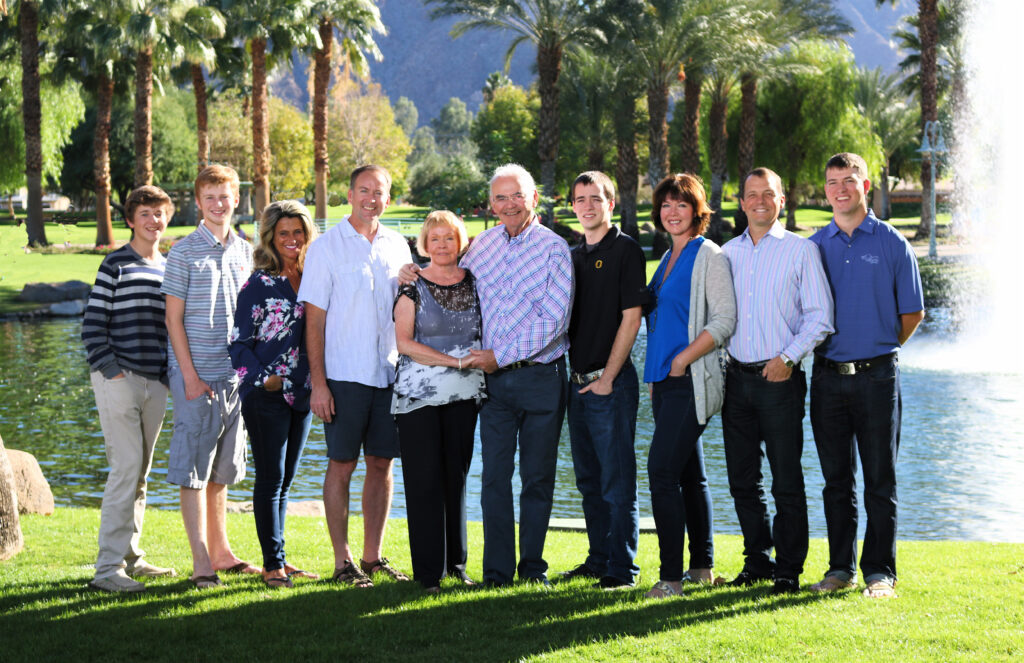
What advice do you have for the previous generation?
Max Gabriel: Lean into change. It’s natural for the older generation to hold onto the way things were, but the world is different and continuously evolving. Stay open-minded to it.
Melody Gabriel: I think that’s good advice. Ever since COVID, things are changing at a faster pace.
Max Gabriel: Senior housing is a unique business because of frontline caregivers. There has to be a balance of technology and staying up to date with the latest trends.
Tye Gabriel: In the last four years, the business and industry have probably changed more than any other time in our company’s history. One of my grandfather’s values has always been innovation and creating solutions to meet the needs of the market, which we need to continue. We also need to continue to be adaptable.
From a family business perspective, we need to stay aligned on shared goals and priorities.
Where do you see the future of senior housing?
Melody Gabriel: We all know how deeply our industry needs to change to take care of Baby Boomers. Max alluded to the importance of staying curious. Staying curious and pushing ourselves is how we’ll ultimately be able to attract more workers; pay them a fair wage and provide environments for seniors that are enriching.
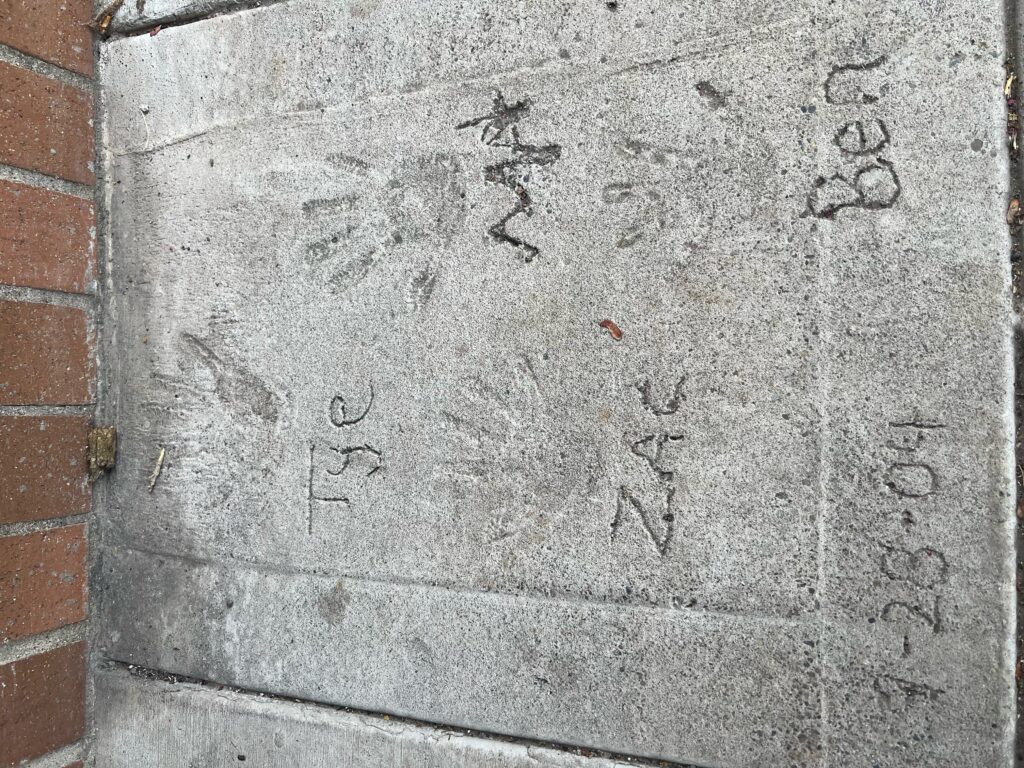
Max Gabriel: I think there needs to be greater emphasis on vulnerability and transparency. Our job is tough emotionally, which requires vulnerability. That’s what separates us. That personal touch gets lost with big capital ambitions.
Tye Gabriel: When I think about the future, I think about the past as well. I think externally there’s been this perceived pressure that it’s Max and my responsibility to continue this legacy. I never felt that growing up. That lack of pressure and encouragement to pursue my own path in turn allowed me to come back and take on a leadership role within the company. I think we need to foster that sense of encouragement to the next generation of leaders in the senior space.
